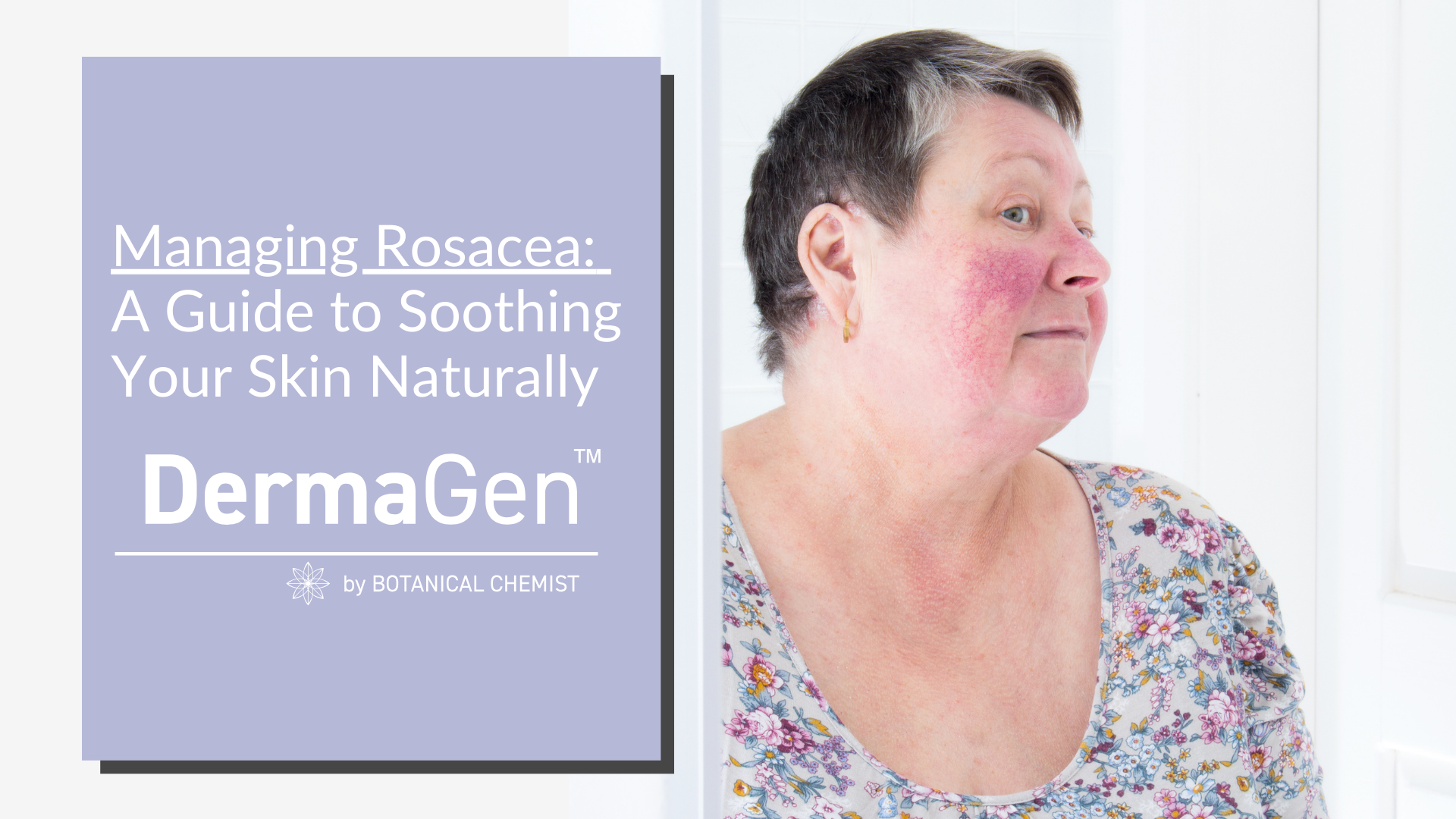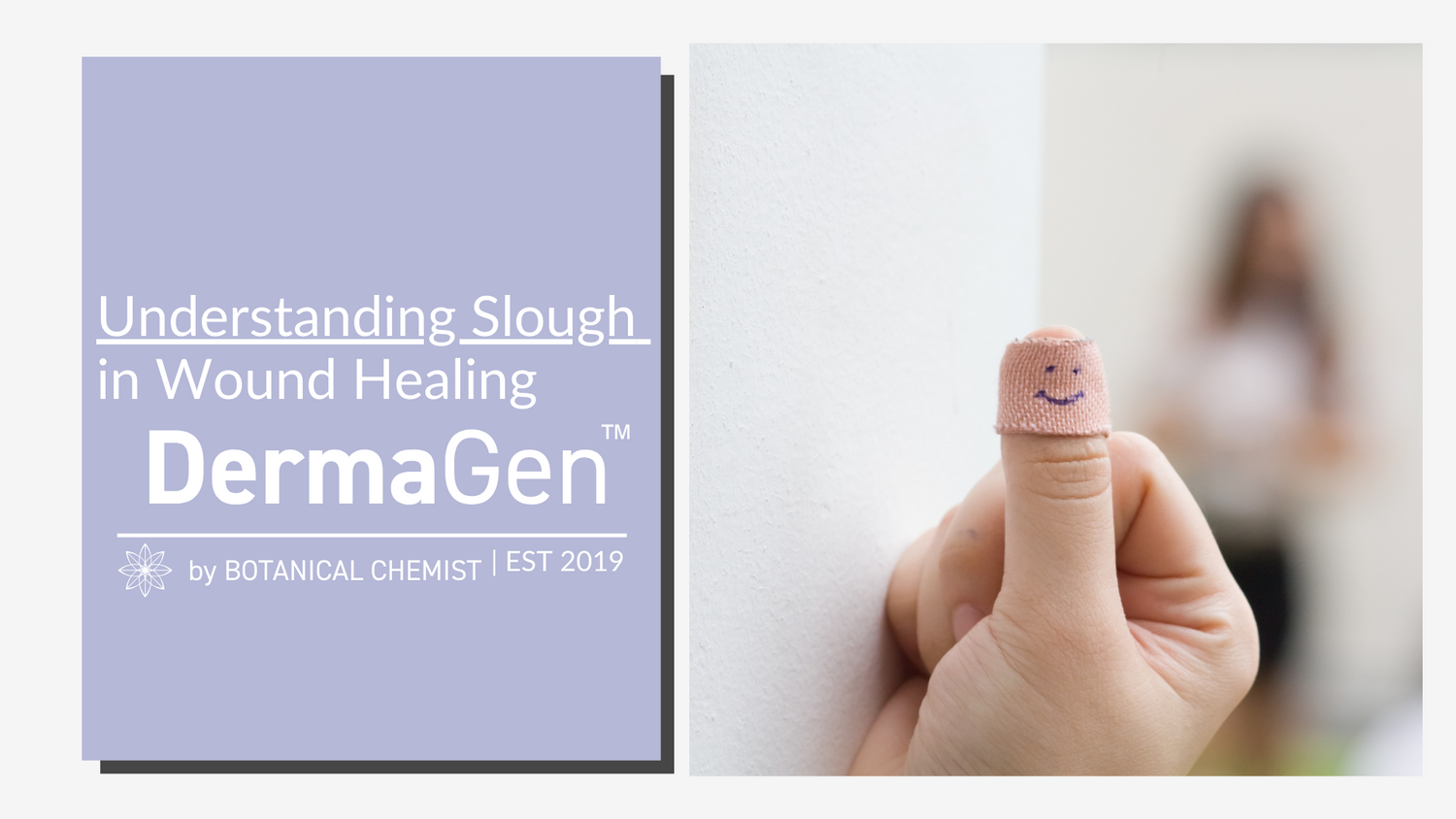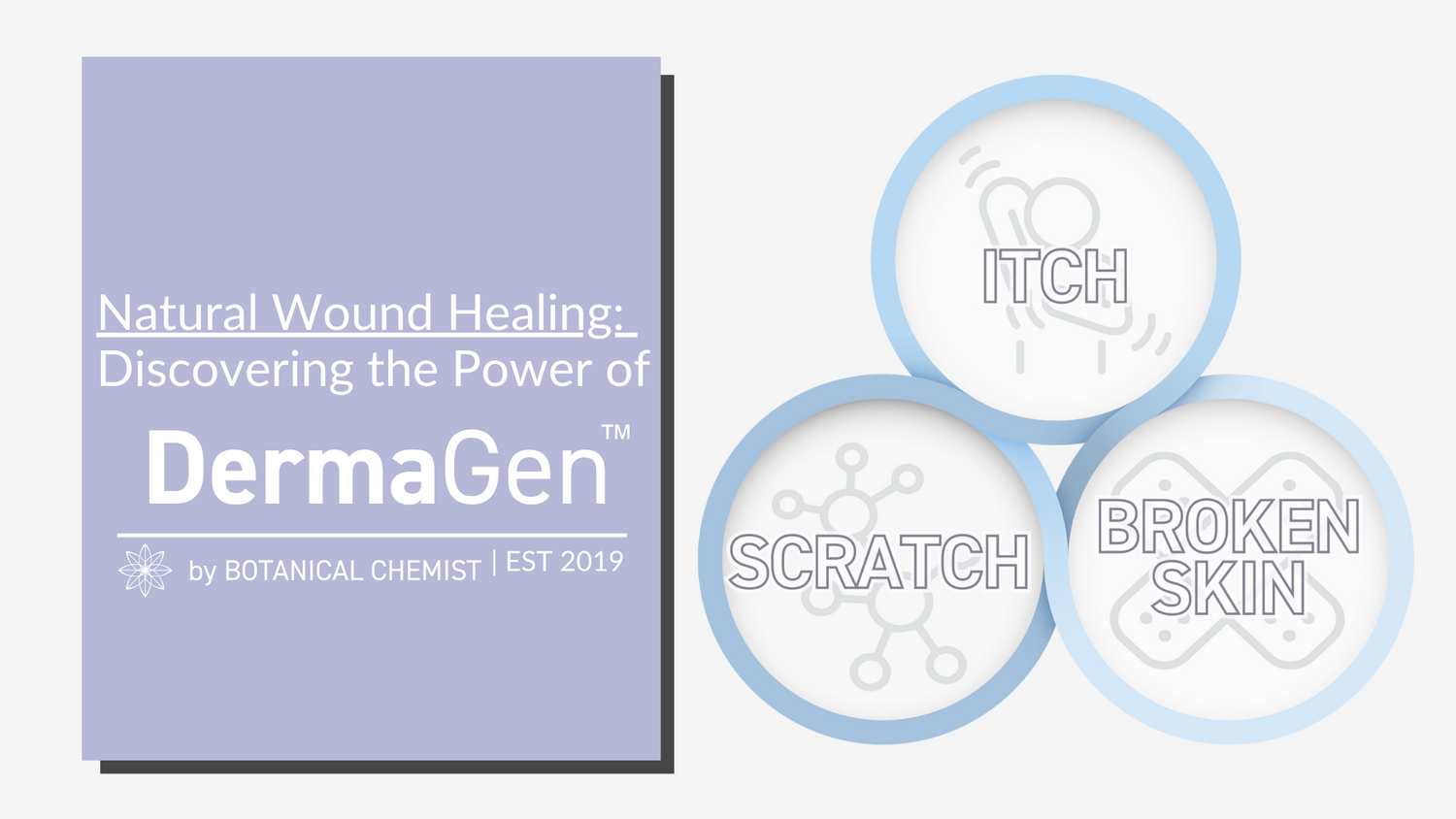Living with rosacea often means grappling with increased skin sensitivity to factors like sun exposure, heat, humidity, and alcohol.
These can trigger flushing and vasodilation, which over time can lead to more permanent dilated and visible capillaries and thickened skin.
If you're one of the many people dealing with the redness, inflammation, and visible blood vessels that come with rosacea, you know how challenging this skin condition can be.
While the exact cause of rosacea remains unknown, researchers believe there's a genetic component and that an overreaction of the immune system to certain bacteria and parasites in the skin can trigger more severe symptoms.
This blog post will guide you through understanding rosacea, managing your rosacea triggers, and the ingredients that can help soothe and heal your skin.
Understanding Your RosaceaThere are four types of rosacea that affect the skin, most commonly the face, head, and neck. Each type has its own unique symptoms and requires a different approach to management and treatment.
Understanding your specific type of rosacea can help you better manage your symptoms and choose the right skincare products.
- Erythematotelangiectatic Rosacea (ETR)

- Papulopustular Rosacea

- Phymatous Rosacea

- Ocular Rosacea

Each type of rosacea has its own unique set of symptoms and triggers, and understanding which type you have is crucial to managing the condition effectively.
Always consult with a healthcare professional or dermatologist for a proper diagnosis and treatment plan.
Managing Your Rosacea TriggersLiving with rosacea often means learning how to manage the triggers that can exacerbate your symptoms.
These triggers can vary from person to person, but common ones include sun exposure, heat, alcohol, spicy food, and stress.
- Sun Exposure: Always protect your skin from the sun. Use a sunscreen that's gentle on sensitive skin, or wear a hat when going out. Sun exposure can cause rosacea flare-ups, so it's essential to protect your skin.
- Heat: Extreme heat can worsen rosacea symptoms. Try to avoid saunas or hot baths, and stay cool during hot weather.
- Alcohol:Alcohol can cause vasodilation, leading to redness and flushing. If you notice that your rosacea flares up after drinking alcohol, it might be best to avoid it.
- Spicy Food: Spicy foods can trigger rosacea flare-ups in some people. If you notice a connection between eating spicy food and your rosacea symptoms, consider adjusting your diet.
- Stress: Stress increases inflammation in the body, which can worsen rosacea symptoms. Try to manage stress through relaxation techniques like meditation, yoga, or deep breathing exercises.
- Skincare Ingredients: Certain skincare ingredients can irritate your skin and worsen rosacea symptoms. Be cautious with products that contain alcohol, acetone, acids, and fragrances.
Retinoids or vitamin A can make the skin more sensitive to burning and cause irritation if too strong for sensitive skin, so use these with caution.
In addition to avoiding these triggers, it's also important to choose the right makeup products, apply daily SPF, and read product labels carefully. Identifying your personal triggers and learning how to manage them can help you prevent flare-ups and keep your rosacea under control.
Ingredients That Can Help Soothe and Heal Your SkinWhile managing rosacea often involves avoiding triggers, it's equally important to nourish your skin with ingredients that can help soothe and heal
Here are some ingredients that can be beneficial for rosacea-prone skin:
- Vit B3: Also known as Niacinamide, this essential vitamin is a powerhouse for skin health. It not only decreases inflammation, a common issue in rosacea, but also supports healthy skin repair and boosts collagen production.
Incorporating Vit B3 into your skincare routine can help manage rosacea symptoms and promote overall skin health.
- Zinc Oxide: This mineral is a crucial ingredient for skin health, particularly for those with rosacea. Zinc Oxide provides protection from harmful UV radiation, which can cause inflammation and worsen rosacea symptoms.
Incorporating products with Zinc Oxide into your skincare routine can help manage rosacea symptoms and protect your skin from further damage.
- Hyaluronic Acid: This powerful ingredient is a must-have for rosacea-prone skin. Hyaluronic Acid not only increases skin hydration, but it also helps repair the skin barrier, which is often compromised in those with rosacea.
Incorporating products with Hyaluronic Acid into your skincare routine can help manage rosacea symptoms and promote overall skin health.
- Essential Oils: Manuka Oil and Lavender Oil are particularly beneficial for those with rosacea. Known for their antiseptic properties, these essential oils can help keep skin clean and free from irritants.

Additionally, their calming properties can soothe skin irritations, a common symptom of rosacea, and support skin regeneration. Incorporating these essential oils into your skincare routine can help manage rosacea symptoms and promote overall skin health.

- Healthy Oils: Oils such as Seabuckthorn, Fish, Krill, Salmon, and Hemp Seed are rich in Omega 3, 6, and 9. These essential fatty acids can help reduce inflammation, increase skin moisture, and support the skin barrier, making them particularly beneficial for those with rosacea.
- Antioxidant-rich Berries: Berries, particularly Cloudberry and Black Raspberry, are rich in antioxidants that are crucial to skin health.

- Blue Tansy Oil: Derived from the Tanacetum annuum plant, a member of the chamomile family, Blue Tansy Oil is known for its ability to soothe and calm irritated and reactive skin, making it an excellent choice for rosacea-prone skin.

At Dermagen, our mission is to support you in managing your rosacea effectively.
We've carefully formulated our products with sensitive skin in mind, infusing them with soothing oils that help reduce irritation and redness. Free from acids, alcohol, and preservatives, our products are a safe and gentle choice for your skincare routine.
Our pH-balanced, soap-free Liquid Soap and Shampoo is enriched with Manuka Oil, a potent ingredient known to inhibit the growth of acne-causing bacteria.
This makes it an ideal choice for those with rosacea. Additionally, any of our oil serums can be used as a cleansing oil, offering a gentle and hydrating cleanse that respects your skin's natural balance.
For targeted treatment, we recommend our Rejuvenating Serum, which combines the power of Manuka Oil, Cloudberry Oil, and Blue Tansy Oil.
If your skin is more dry and prone to acne or pimple breakouts, our Active 8 Serum, with a higher concentration of Manuka Oil, Lavender Oil, and Wild Thyme Oil, could be your perfect match.
If you're in search of a moisturiser enriched with Niacinamide or Vitamin B3, consider our Skin Radiance lotion, Anti-Redness Cream, or Anti-Spot Cream.
Each of these products contains 5% Vitamin B3 and Manuka oil, a combination that helps calm skin redness and promotes a healthy skin barrier.
While our focus is on empowering you with knowledge and products to manage rosacea at home, we recognise that severe cases may require professional-grade treatments.
These treatments are designed to address a range of sensitive skin conditions, including rosacea, and can provide significant relief from symptoms.
A consultation with a skincare professional can provide a thorough assessment of your skin, helping you understand your unique rosacea triggers.
This knowledge is invaluable in creating a personalised skincare routine that addresses your specific needs and helps manage your rosacea symptoms effectively.
Whether you're working with a skincare professional or managing your rosacea independently, remember that understanding your skin is the first step towards achieving healthier, happier skin.
Always consult with a healthcare professional or dermatologist for a proper diagnosis and treatment plan. And remember, our products are here to support you on your journey to better skin health.






